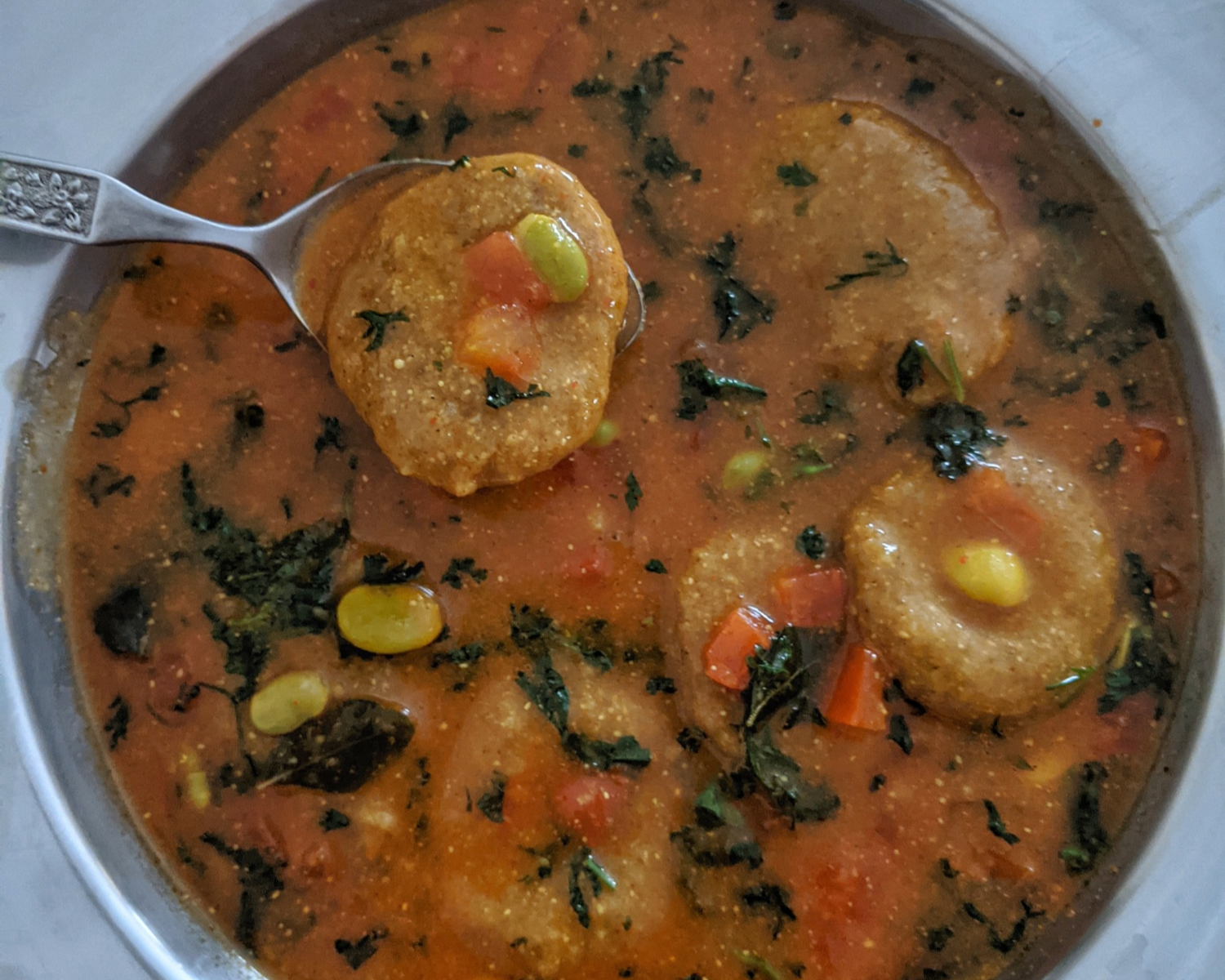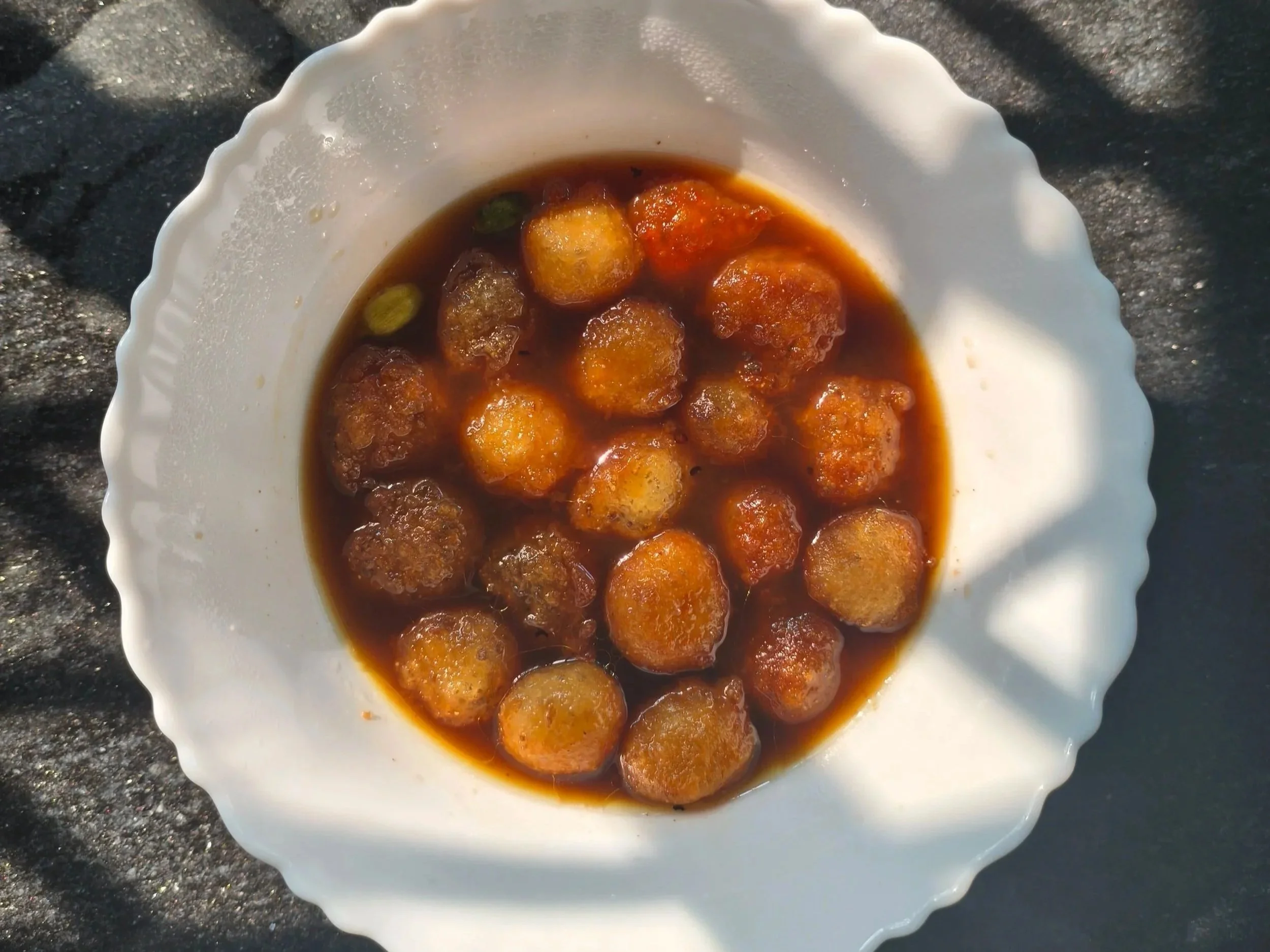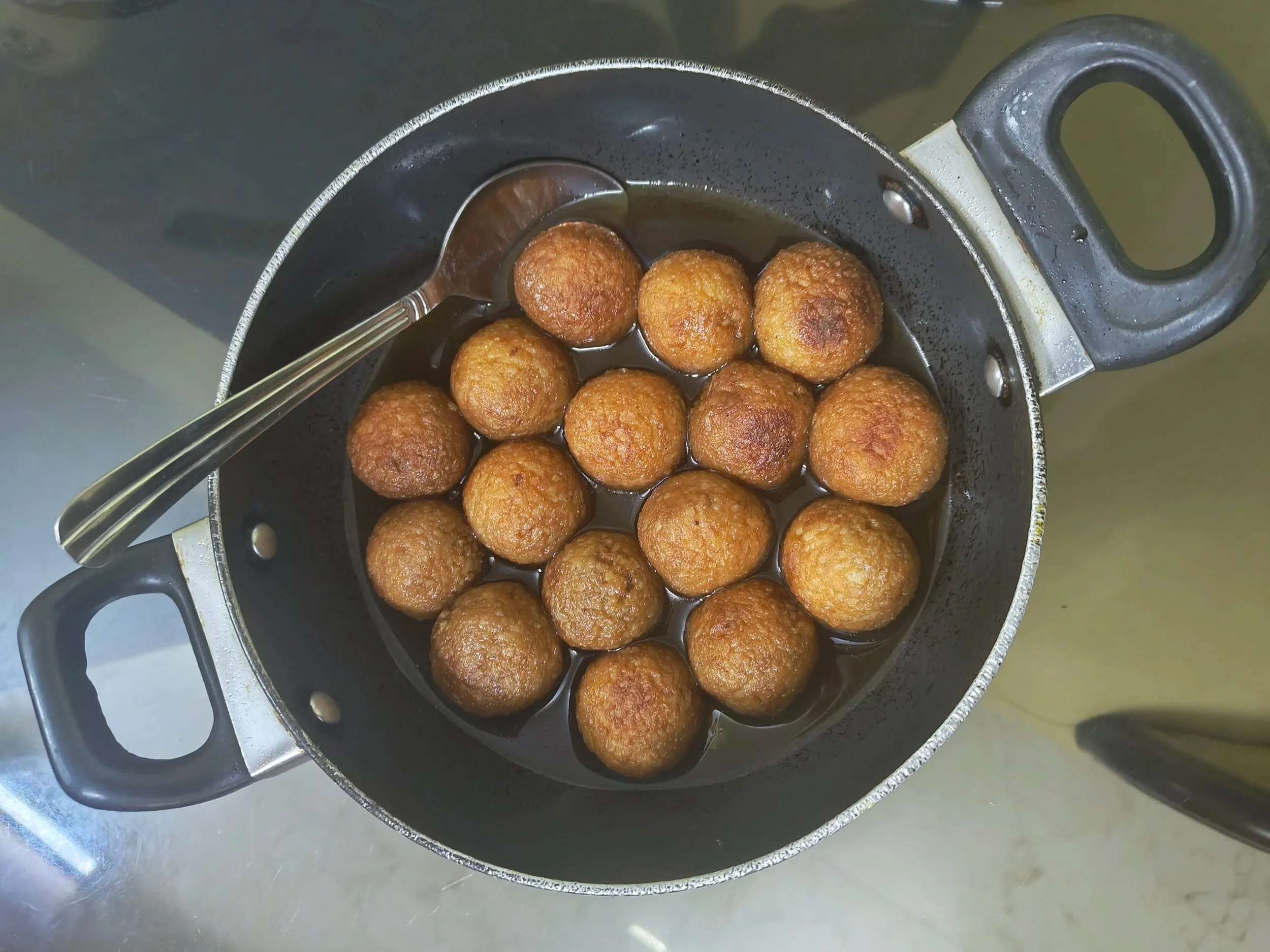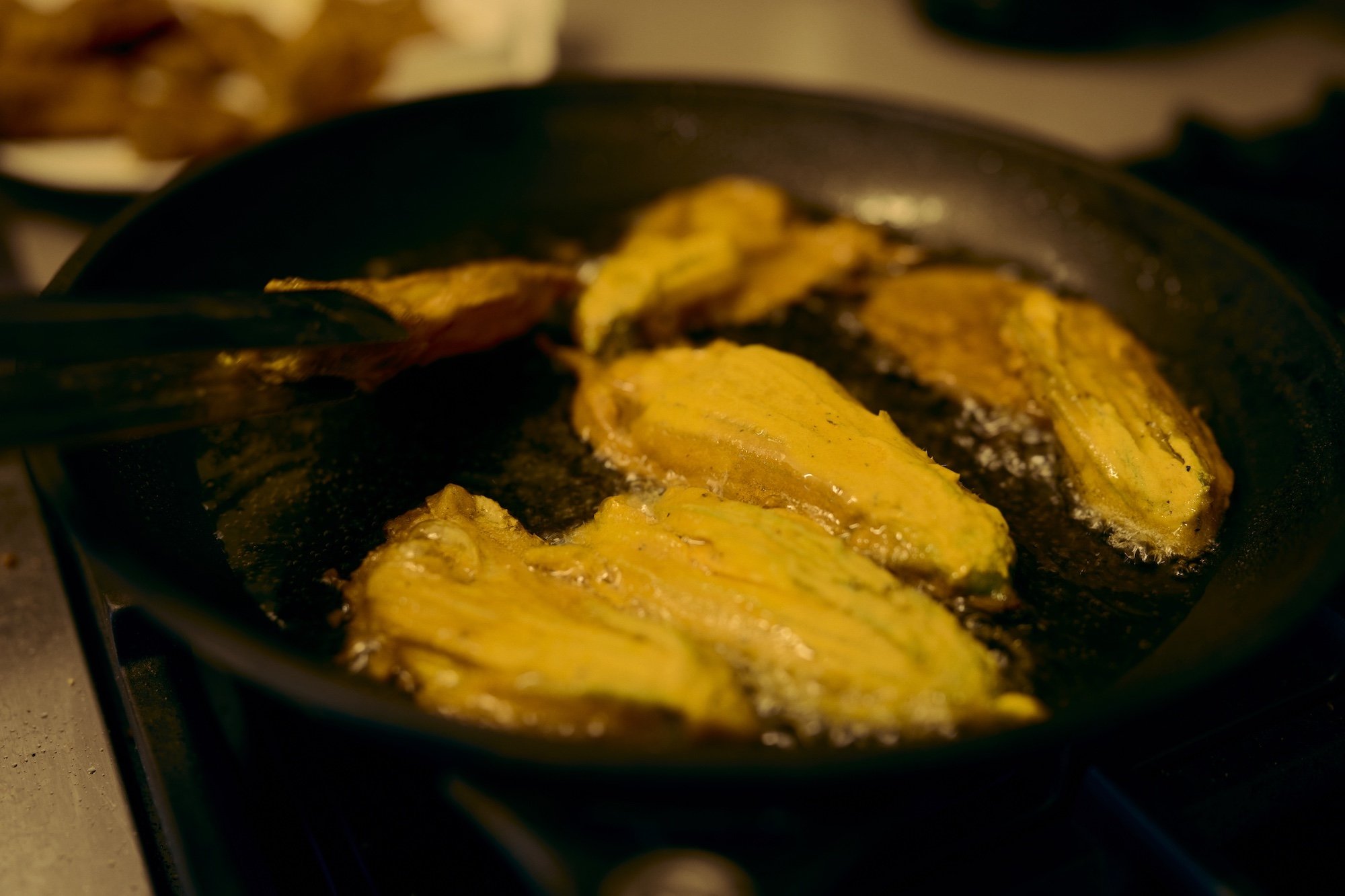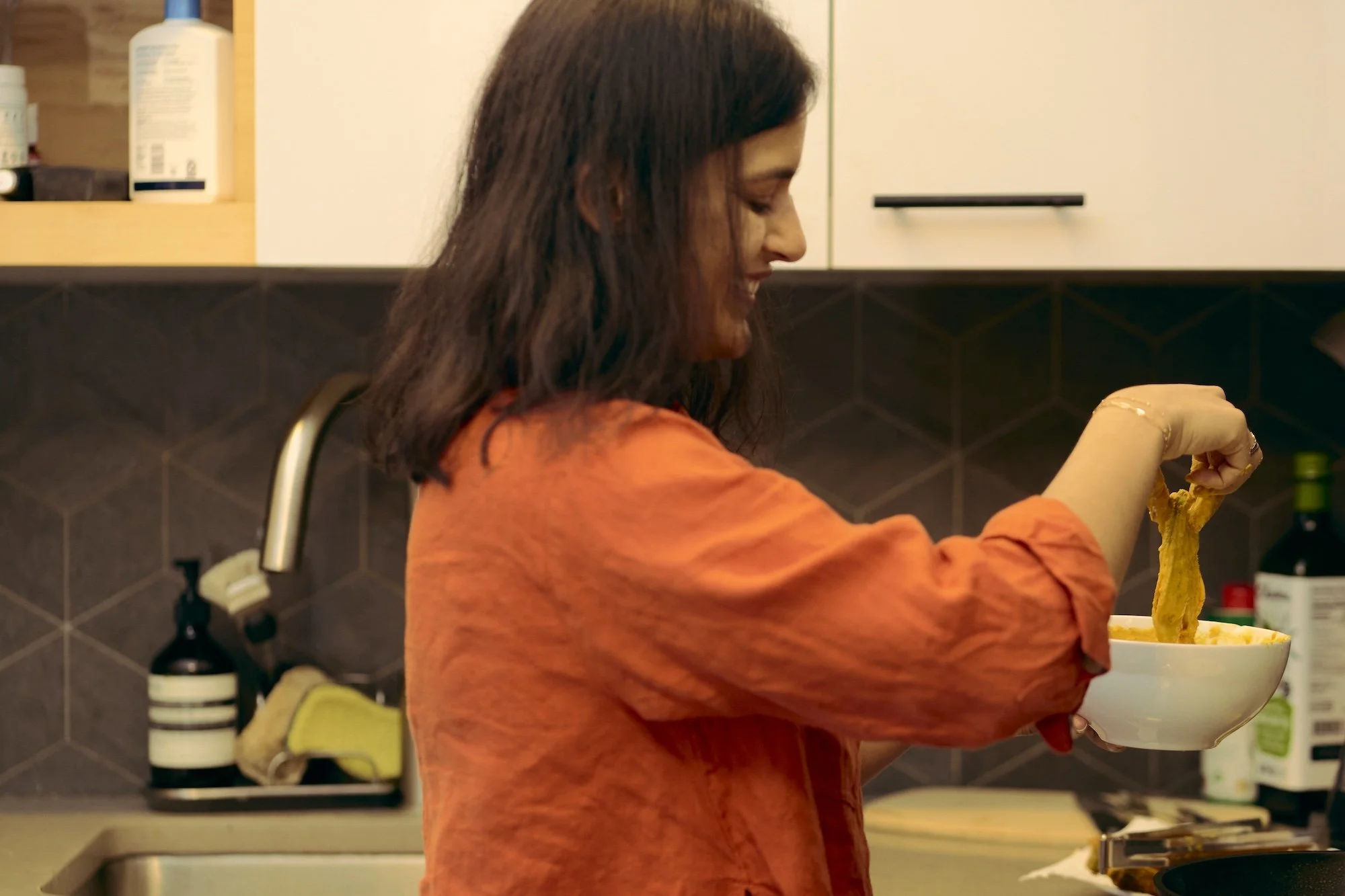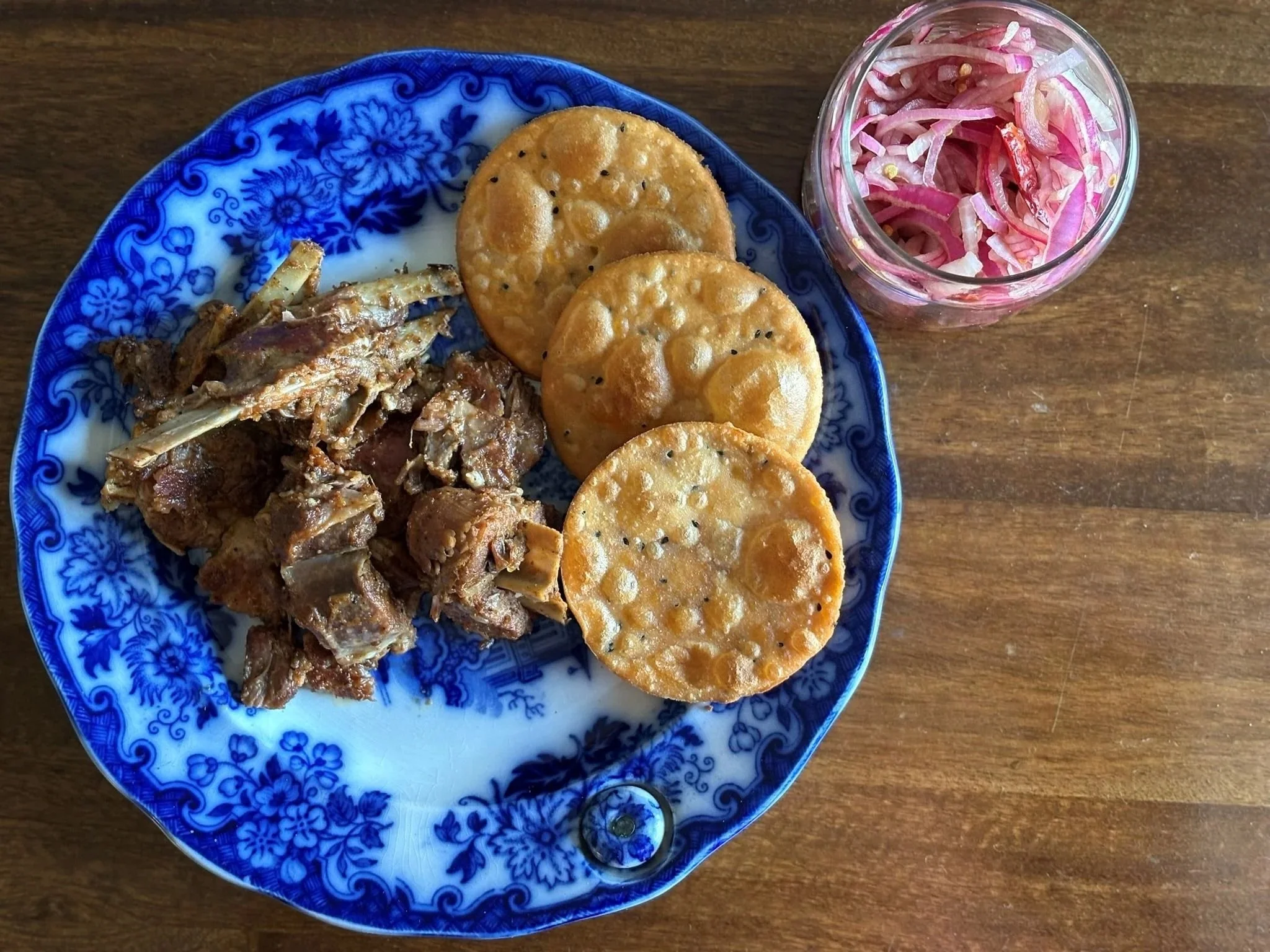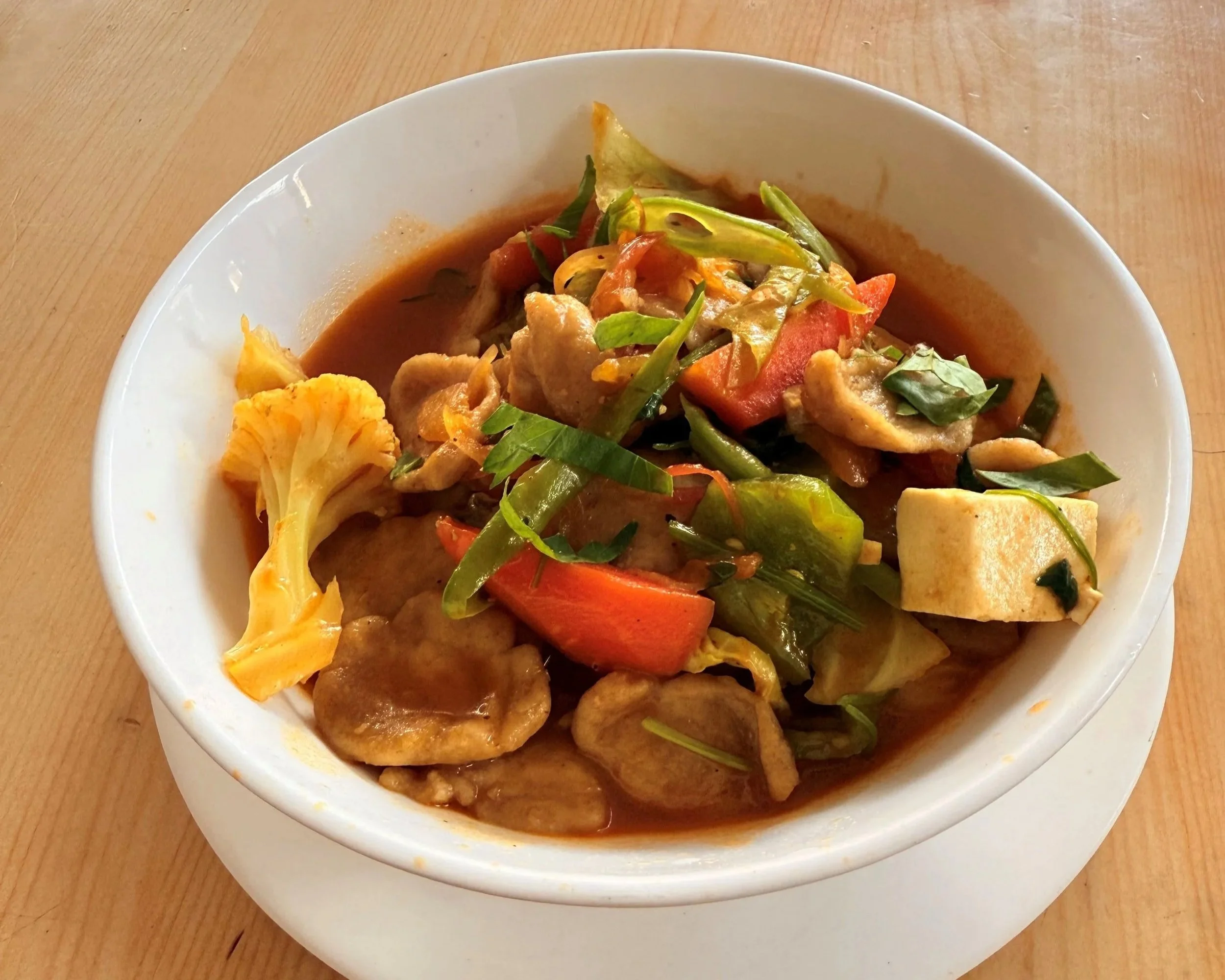Recreating a Recipe for Rui Poshto from Memory

Rui poshto, a Bengali preparation of sweetwater fish in poppy seed curry, has roots that can be traced to a cruel colonial past that induced the Great Bengal Famine, and perhaps even further, to Mughal dynasties that introduced new culinary ideas.
Not too long ago when the four-year-old in our home would run into the culinary quarters demanding for 'kitchen soup,' sweetly confusing the word 'chicken', Baba would make a quick exit, to bring home exquisite Bengali dishes from the College Street restaurant, Radhuni (named for wild celery seeds often used in Bengali cuisine, and part of the famous Paanch-phoron). In the 90s, home-delivery was a service extended by very few restaurants. One day, he brought home Rui-Poshto, a dish we spent the subsequent week wildly experimenting over in the kitchen, trying to crack the recipe. Rui-Poshto is a preparation of rohu, sweet-water fish of the carp family, steam-cooked or sautéed in poppy seed paste.
Baba began to explore all the little sorceries that Nanu, my grandmother (and the family's resident fish-expert), had impressed upon us over years of weeknight dinners together. The poppy seeds were ground on a mortar, with a pestle, adding little drops of water and milk, to make an even, creamy paste. One of Nanu's legendary directives was that the fish must not be over washed, after it had been cleaned, gutted, and sliced. She believed that washing erodes both flavour and freshness; half an hour of marination in salt and turmeric would do the job.
The most significant memory of home-cooked meals remain intertwined with stories of famine, partition, and independence; mandatory reflections on how our food came into being and made us Bengali. The opium trade was a favourite subject at the dinner table; it was the East India Company who enforced agricultural monoculture in Bengal. This forced cultivation impoverished our farmers, leaving them hungry and desperate. Poppy seeds are basically the dried waste of opium plants, that farmers then took home and made little meals of, to supplement whatever rice was leftover. As children, we were horrified at that thought, and Baba would quickly change the subject to Mughal rulers who were also influential to Bengal's agriculture. Rabindranath Tagore's Kabuliwala was a favourite reference, for how ingredients such as raisins and asafoetida (hing), came to be included in Bengal's cuisine. But then again, agriculture itself was introduced to India by Arab traders, in 3000 BC. They were the first to frequent the sea routes that actually led to the cultivation of opium on Indian soil. Much later, I learnt that poshto (or khas khas) was an important ingredient in Mughal recipes, often used to thicken gravies or add a little crunch.
Over these lockdown days, as many of us struggled with the uncertainties of life and living, Mamma and I have often craved for poshto, thinking of Baba. Our culinary companionship is based on a common memory of Baba's beautiful tapered fingers, tending to each ingredient ceremoniously. It has been a long and arduous journey for us, getting these proportions right, but between us, we managed to recreate the flavours he nourished us with. My sister, now a grown woman, has also tried recreating his recipes from memory too. Here is Baba’s recipe for Rui-Poshto, perfected in our kitchen.
RUI POSHTO OR ROHU IN POPPY SEED CURRY
Ingredients
250-500 g Rohu (cut in curry pieces)
A pinch of turmeric
20-30 mg poshto (or, to taste)
5 mg black and white mustard seeds mixed (optional)
1 big bayleaf
1 dried red chilli
½ a tsp onion seeds/nigella seeds
4-6 cloves
3-5 green cardamoms
1/4 inch cinnamon
8-12 black peppercorns (optional)
1 tbsp of ginger paste
1 onion (grated)
1 tsp salt (or, to taste)
A pinch of red chilli flakes (optional)
1 tsp sugar
1 tomato (just the juice inside it)
1 cup water
2-3 green chillies (sliced in two or whole as per taste)
4 tbsp mustard oil (or, to taste)
2 tbsp milk/coconut milk
Marination
Wash the fish pieces and marinate with salt and turmeric. Set aside for half an hour.
Grinding poshto
Grind the Poshto with black and white mustard seeds (the addition of mustard seeds is optional). Add water and milk in small quantities to reach a consistent creamy texture.
Method
Heat 2 tablespoons of mustard oil in a wok. Place the fish in the hot oil and fry until slightly golden-yellow. Remove from wok and set aside.
Add 1 tablespoon of mustard oil to the hot wok and then add the bayleaf, red chilli, onion seeds, green cardamoms, cloves, black peppercorns, cinnamon, ginger paste, and grated onion to fry. Saute with a spatula or ladle.
Then add salt, sugar, and red chilli flakes, and saute. After the initial browning of the spices, lower the heat of the oven/stove, and squeeze out the juice of the tomato (as you would squeeze a lemon) on top. Avoid the pulp, but if you like it, add a bit for flavour. Saute for about half a minute and place the fish in. Cover the wok with a lid and allow to cook. After 5 minutes, check if the fish has started to release a little oil. If so, then add the ground poshto paste, and saute gently. Add 1 cup of water and stir gently. Add the green chillies and 1 tablespoon of mustard oil, and cover the wok to cook for 10 minutes. Make sure that the water has reduced and the paste has turned a little fluffy in appearance before you take it off the fire.
Sometimes, I garnish it with 8-10 raisins in memory of Nanu who was also known as Mini (named after a cat in her childhood home and not Kabuliwala's protagonist much to her dismay) and loved raisins too.
Serve with white rice.
Banner image credit: A Homemaker’s Diary
Satarupa Bhattacharya is based out of Delhi. She writes on various subjects ranging from politics to the arts and popular culture to history. She's currently too busy compiling Bengali recipes in her kitchen.
ALSO ON THE GOYA JOURNAL
